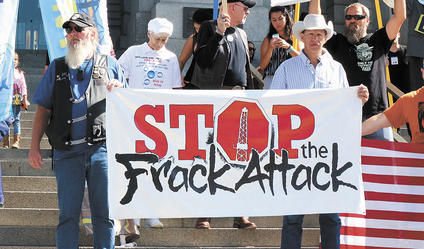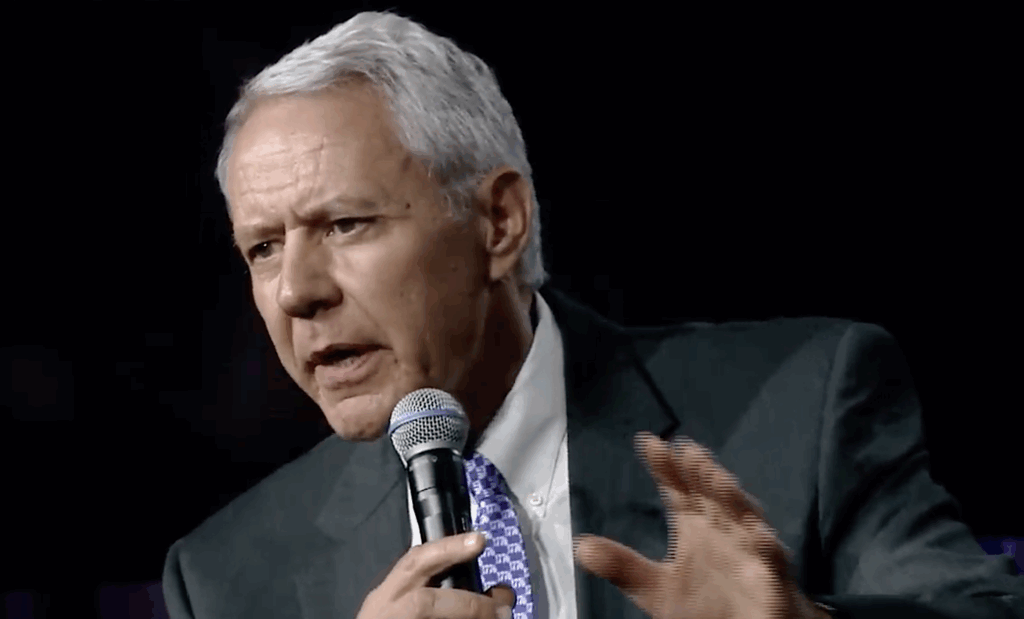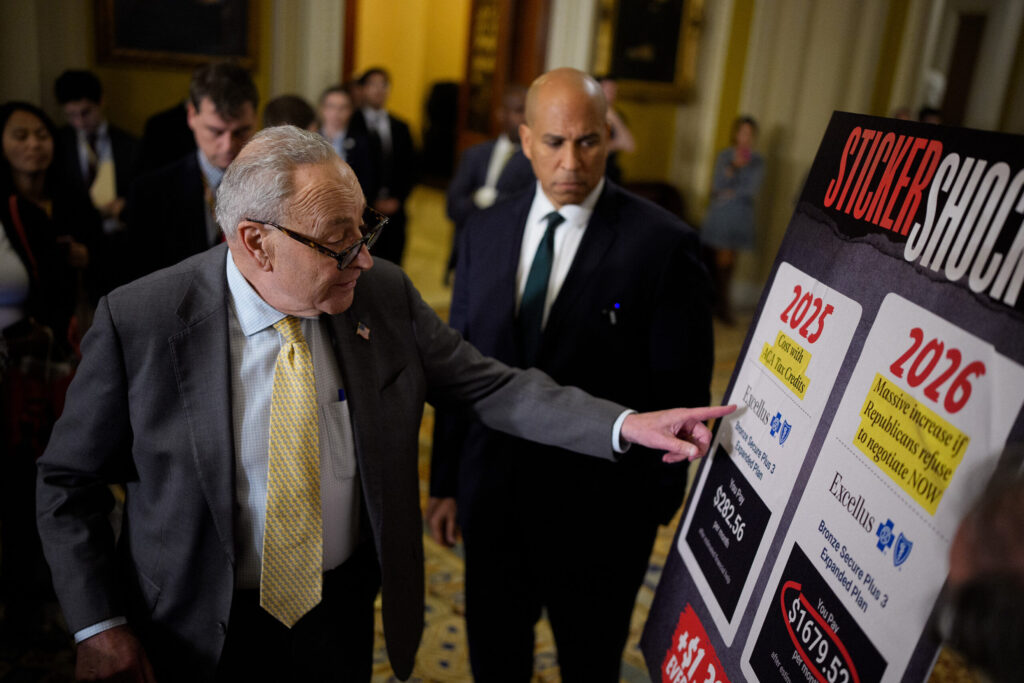National fractivists boost movement with summit, march on state Capitol

If last weekend’s Stop the Frack Attack national summit in Denver was any indication, the days of seeking local moratoriums, tighter regulations and studies on hydraulic fracturing may be over.
Activists from 30 states made it clear they will settle for nothing less than a prohibition on fracking, as organizers called on attendees to “escalate the fight between communities and the oil and gas industry.”
At Monday’s “direct action” in Denver, protesters displayed signs with messages including “Ban Fracking Now,” “Keep Fossil Fuels in the Ground,” and “End Fracking—Renewables 100%.”
“What we have is an energy revolution that is at our feet, and we are the boots on the ground that this revolution wants to be. We are the energy of change,” said Shane Davis, who runs the Fractivist website, in Saturday’s opening speech at the Holiday Inn Stapleton.
He encouraged the anti-fracking movement to draw inspiration from Argentine Marxist revolutionary Che Guevara, a leading figure in the communist overthrow of Cuba.
“This is the time when we need to shake the political and economic fracking industry’s empire and their rule over global fossil-fuel energy consumption,” Davis said. “Fifty years ago, Che Guevara, a revolutionary humanitarian, fought similarly against ruling forces that were harming local communities.”
The two-day summit, followed by a march on the state capitol and the regional EPA office, came as a shot in the arm for Colorado’s anti-fracking movement, which has suffered a series of setbacks after winning at the ballot box in recent years in five localities.
Elsewhere, the national movement has scored huge statewide victories. In New York, Gov. Andrew Cuomo agreed to a statewide ban in December, while the Maryland legislature halted fracking permits earlier this year until October 2017.
At least two groups are seeking to place anti-fracking measures on Colorado’s November 2016 ballot. The latest effort comes from the newly formed Coloradans Resisting Extreme Energy Development, which plans to run a statewide constitutional amendment.
Spokeswoman Tricia Olson said the group is still drafting ballot language and plans to submit multiple proposals in November or December.
She said the measure would be significantly different from one submitted by Coloradans for Community Rights, whose Colorado Community Rights Amendment would give localities veto power over corporate activity within their borders.
“It’s really a totally separate effort,” Olson said. “Theirs is a very broad initiative. It actually doesn’t even particularly mention fracking or oil and gas of any of that. Ours will be more specific, more focused.”
One hurdle for Colorado’s anti-fracking movement is the opposition of much of the Democratic Party leadership, starting with Gov. John Hickenlooper. Not surprisingly, he was featured in effigy at Stop the Frack Attack’s four-hour march Monday, which ended at the governor’s mansion.
“Colorado’s Gov. John Hickenlooper, also known as Frackenlooper, has gone to war against good science and anyone opposing the fracking industry,” Davis said. “He is suing our communities for protecting their health, safety and welfare against the industry’s pollution and activities.”
“We want to make sure they know loud and clear that fracking is no longer welcome here in Colorado,” Micah Parkin of 350 Colorado told the crowd of about 150 at the state Capitol,
The Stop the Frack Attack coalition formed in 2011 to bring together groups working on fracking issues. The coalition includes 37 national groups, such as the Center for Biological Diversity, Earthworks, Food and Water Watch and Clean Water Action, as well as 88 state organizations.
This year’s national summit drew 230 attendees from 30 states for a program that included workshops, trainings and strategy sessions. The previous summit in 2013 was held in Dallas.
Randy Hildreth of pro-fracking group Energy in Depth said the event showed the movement has abandoned its previous push for moderate solutions, such as increased setbacks from drilling sites.
“While these groups have often claimed to be for stronger regulations, in today’s protest, they seem to have dropped any pretense of that, now parading around signs with such over-the-top sentiments as: ‘Rule Are Not Enough! No More Sacrifice Zones!’” Hildreth said in a Monday post.
Davis, a Stop the Frack Attack advisory council member based in Colorado, argued that the threats from oil and gas development have become more urgent.
“Climate change was yesterday. We’re in a climate crisis now,” Davis said. “We cannot have a political revolution without a social revolution first. We must understand that the system is not broken, it was designed that way. It was created by those who it favors the most, which is definitely not us.”
He called on the movement to “get into the state and transform it and become it.”
“Solidarity is our greatest weapon. You are the energy of change,” Davis said. “Like Che, you are facing herculean obstacles in our pursuit to halt the harm caused by the empire pollution. It is our moral obligation to fight for a purpose higher than self. And that, in itself, is a revolution.”
He also thanked those who attended the summit, giving up vacations and family time to work for the cause.
“Che also said that a real revolutionary goes where he or she is needed,” said Davis. “So I thank all of you for coming here where you are needed. We called you. You came. And we will come to you when you need us.”















